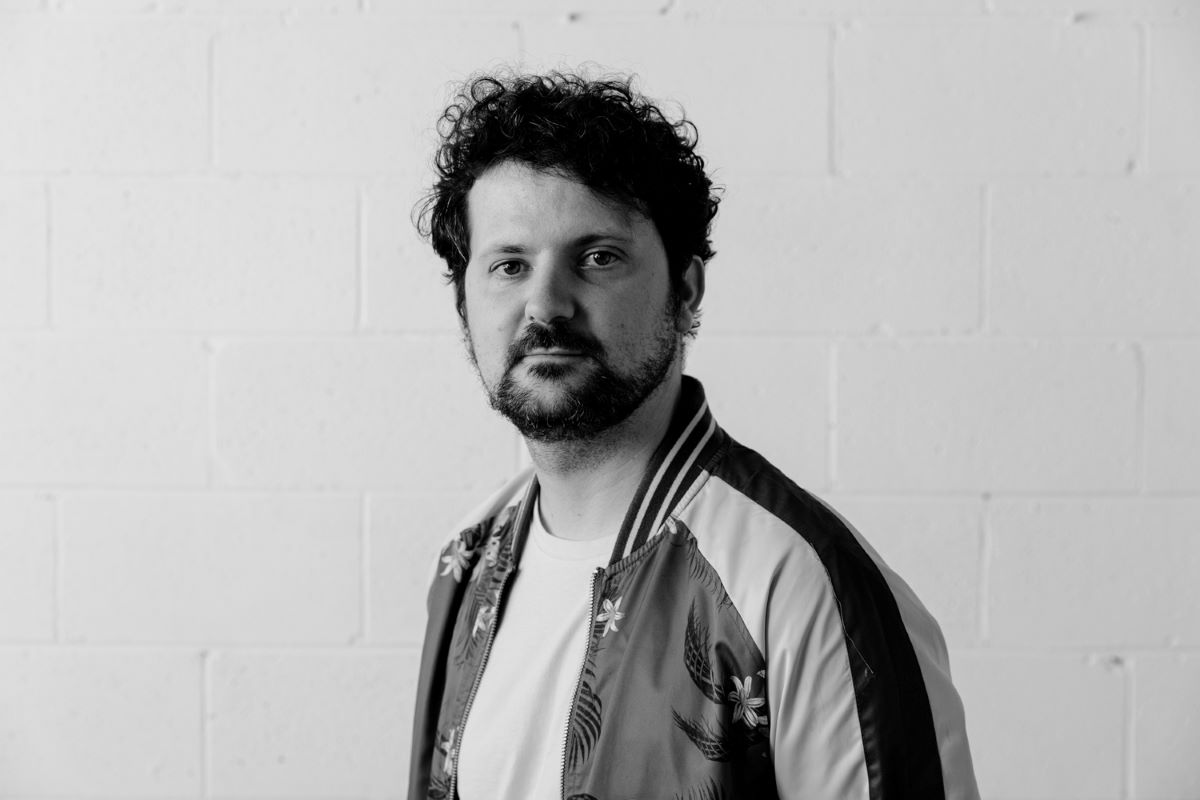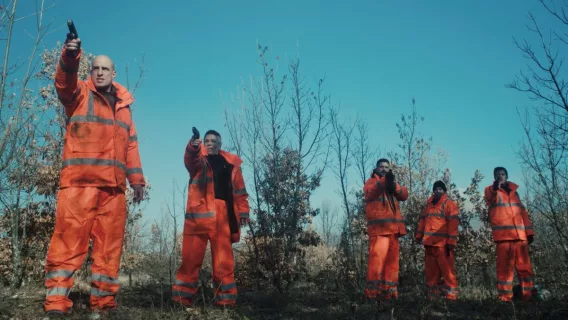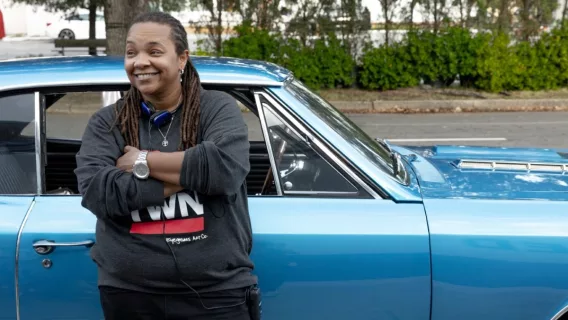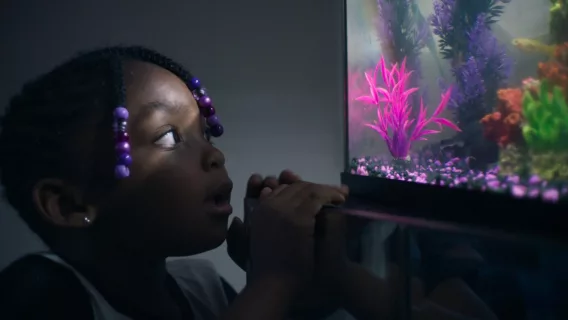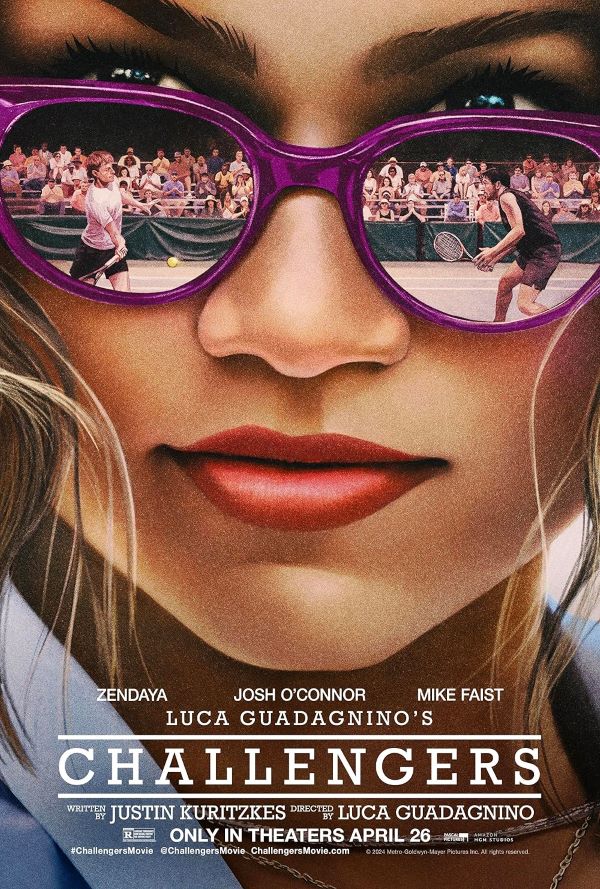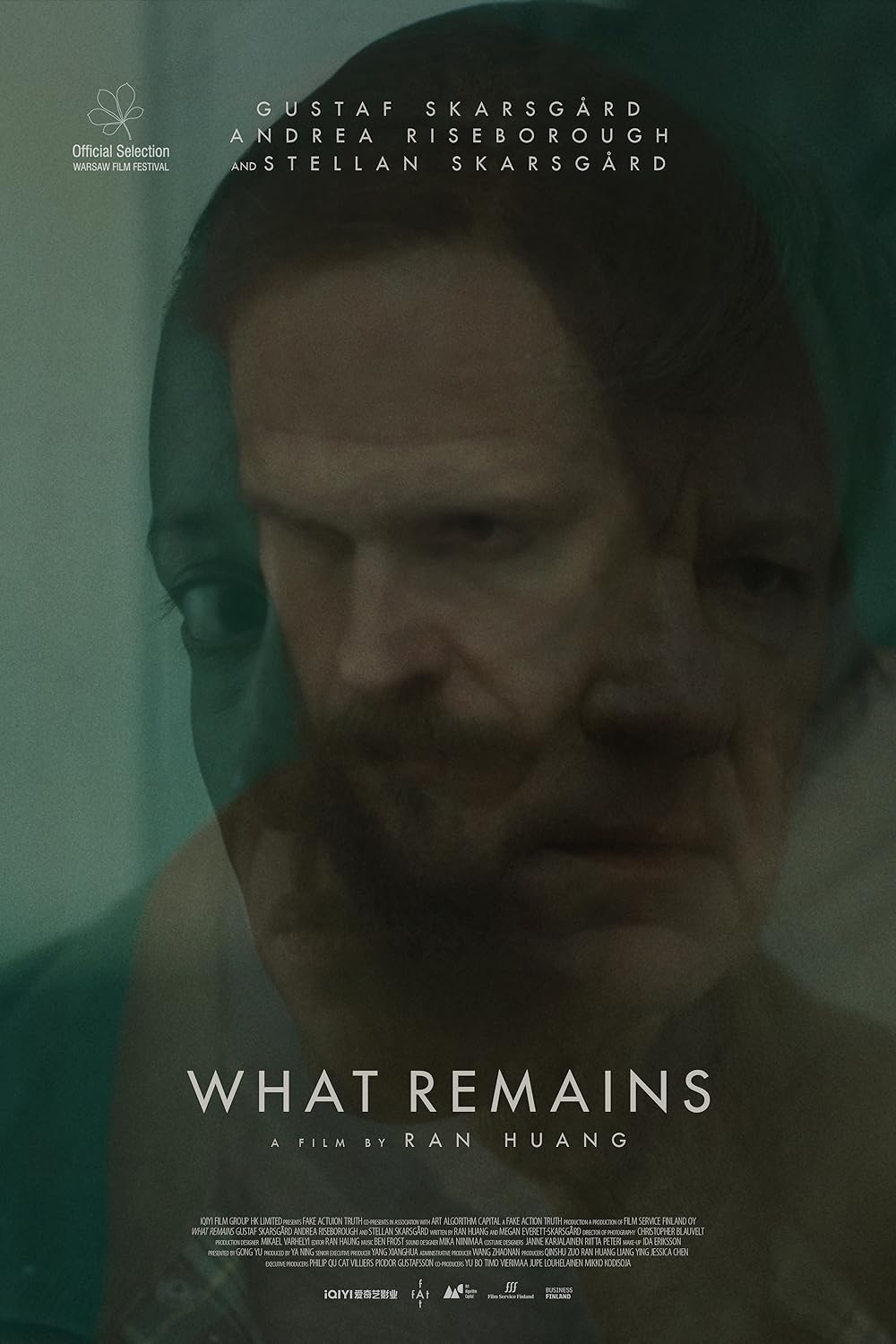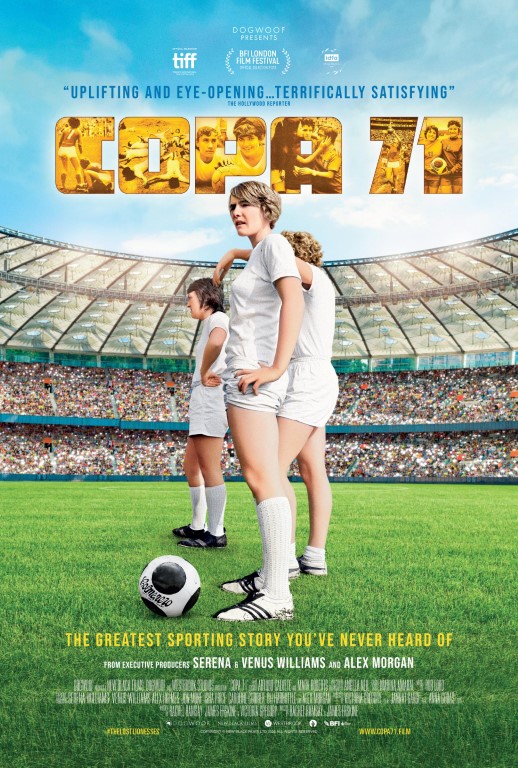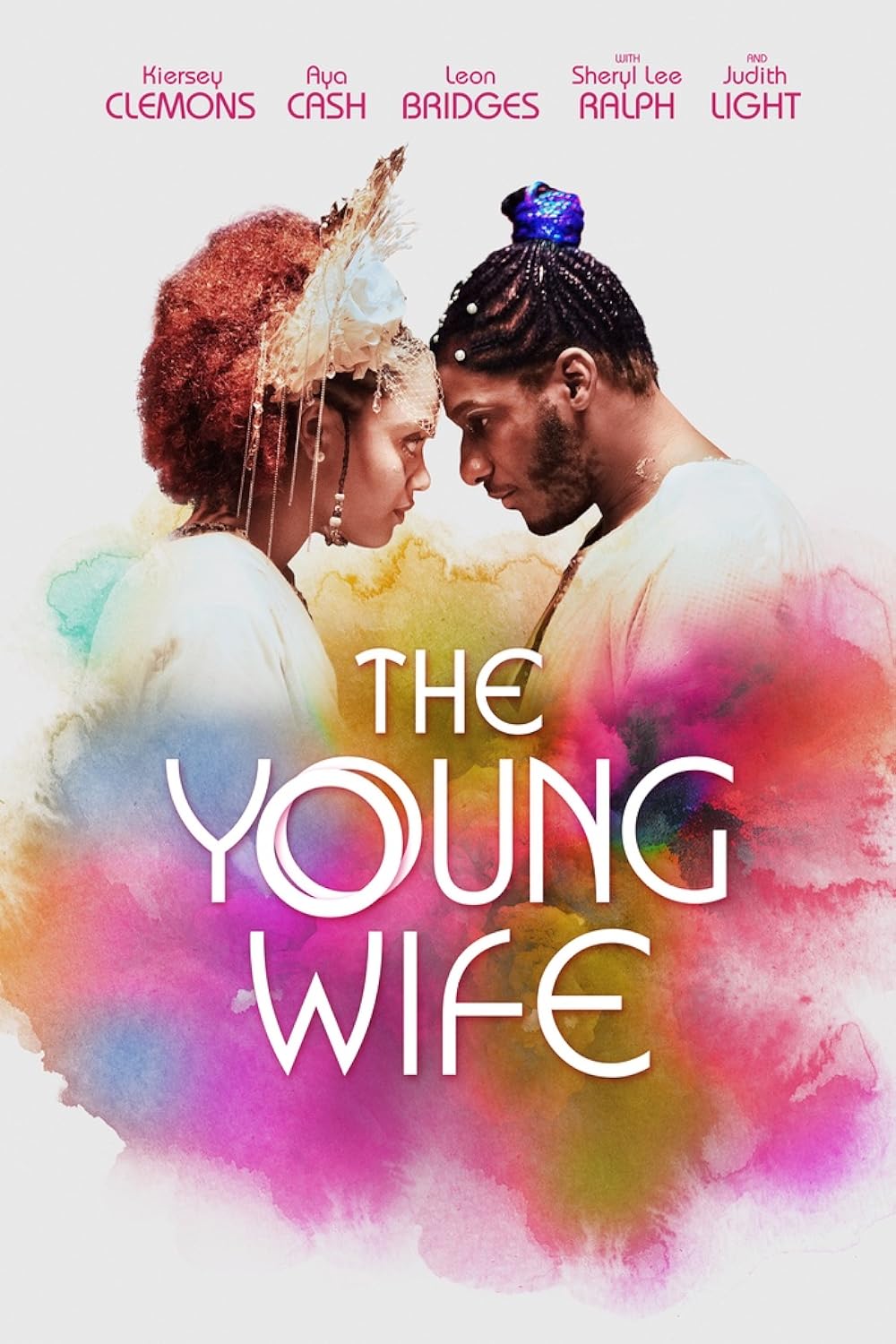The sci-fi thriller “Monolith” above all else, demonstrates how to do more with less. Taking place in one location and starring only one on-screen actor (Lily Sullivan, “Evil Dead Rise”) the film was shot over 15 days and on a budget of under a million. It’s the type of scrappy production that would be daunting for anyone, but the film delivers ambitious and pulse-pounding thrills because of its limitations and not in spite of them.
Sullivan plays a character known only as The Interviewer, a disgraced journalist who is blacklisted from the industry after failing to properly check her sources for a high-profile story. She retreats to her parents’ home in the Adelaide Hills where she attempts to keep her career afloat through working for a podcast that explores unsolved mysteries and hoaxes. One day, she receives an anonymous tip about black bricks that people around the world receive without warning. As she interviews subjects who are recounting their experiences with their bricks, she begins to suspect that the items may be extraterrestrial in nature and as she goes down the rabbit hole of conspiracy, she finds surprising and terrifying connections to her own troubled past.
“We really wanted to get into the parasocial relationships people have with podcasters and explore the fact that we trust them when we have no reason to trust them,” director Matt Vesely told RogerEbert.com via Zoom. “[The film] brings up these ideas about who gets to control a story and the power that comes with that.” In our conversation, Vesely shared more about what surprised him the most about Sullivan’s performance, his hopes for the next generation of investigative journalists, and why you should always watch your back when working with turtles.

This conversation has been edited and condensed for clarity.
You, writer Lucy Campbell, and producer Bettina Hamilton all workshopped this film together from the ground up. Can you talk more about what that process of collaboration was like and what changed from your initial vision to what we see in the final film?
I’m a writer as well and this is my first time working with another writer (Lucy) where I’m not writing. I loved it! The collaboration was really freeing and rewarding. The film was developed as part of a lab here in South Australia called Film Lab: New Voices program. The idea was to give filmmakers a chance to make their first feature. We had a year to develop the script as a team and if we were successful, that’s when we’d get production finance. We knew going in that the production finance would be small.
To the tune of less than a million.
Exactly. We were developing an idea for this program that was going to fit the budget. We weren’t trying to make something that could be squeezed into the small budget but rather make a film that would be defined by it and therefore make it more interesting and be all the more unique for it.
I pitched three one-page ideas to Bettina and Lucy. One of them was a film about a psychologist who interviews people who had all previously been abducted by aliens. It was Bettina who suggested the pivot to the psychologist being a podcaster. We ran with that and were asking ourselves “can we do an alien invasion story with one actor?” The film was ultimately called “Monolith” because at the time, those “2001: A Space Odyssey” monoliths were being erected all around the world. We initially had our character investigating them. Over the course of development, we shifted away from that, but Lucy found the thematic idea of the monolith compelling, i.e. exploring the monoliths of privilege and the power structures of the world.
Although we spend most of our time in The Interviewer’s lavish home, there are a couple sequences where we see on-screen depictions of what the interviewees are telling Lily’s character. What went into crafting those visualized hallucinations and why the shift to take us out of the home?
(Laughs) I’ll take credit for those. Those scenes got scripted after the first draft. This is what’s great about a director and writer collaborating so early on. Lucy had written these scenes where the subjects were recounting their experiences in the form of long monologues. As I was sitting there reading this draft I was thinking “What am I going to see there?”
We never wanted to apologize for the fact that there’s just one woman on the screen. It was really important to us that we didn’t see any other people in the film. But those stories being shared were so important to the film, so I felt like we had to do something there. I had this vision of these beautiful and long tracking shots in these empty spaces.
I think the turn audiences will find is that at first, you think we as filmmakers are doing a visual representation of the story that’s happening. But as those scenes eerily progress, it’s revealed that these are all in The Interviewer’s head and what we’re seeing is her own interpretation of the stories she’s being fed. Her biases and experiences are creeping in.

Speaking of shifts, the only living being we see Lily’s character interact with is the turtle, Ian (played by Mavis the turtle). The treatment of Ian’s tank becomes a microcosm of The Interviewer’s own mental state. Fitting in with the conspiracy theory ambience of the film, towards the movie’s end I found myself thinking: “Is the turtle an alien? What’s going on?” I thought it was a fascinating dynamic to have in a film that is built on its central character’s isolation.
We needed some way to access Lily’s character. When you walk around the house, you don’t talk to yourself, but you might talk to your pet. So that was just another device to use. It was a way to see how The Interviewer’s mindset might be shifting.
I think you’re right though that there’s something uncanny about Ian, especially when he decides to stop eating in the film. One of the questions that the film explores is: are we reading too much into small details? Are we making stories when they’re not there? That’s what Lily’s character is doing. We wanted to get the audience to do the same thing. There are all these clues and uncanny elements that may or may not mean anything and Ian’s behavior is one of them. When he doesn’t eat the food Lily gifts … does that mean anything? It’s all part of the trick of the film.
Is Ian an alien tormenting her … or does he just not like strawberries?
The amazing thing about those scenes is that Lucy did specifically write in the script that The Interviewer feeds Ian strawberries, but he doesn’t eat them. I remember thinking “Well how’s he going to do that? He’s a turtle … he’s gonna eat the strawberries.” We did some shots where we placed the strawberries on the opposite side of Ian’s tank and shot him without the strawberries and then tried to edit those two together.
Amazingly though, we did these two takes and they’re both in the film, where we put the strawberries within his reach just to see what was going to happen. He goes up to eat them initially and then decides he doesn’t want them and he swims away. We were all like “What a genius!”
He committed to the bit.
Lily doesn’t like me praising how good he is.
It really is a co-starring role. We have to get Mavis double billing on the next poster. You’re quoted as saying that you like to use genre as a way “to test [and explore] emotional and political truths.” I spoke with director Brian Duffield last year and he shared how he enjoys using genre as a way to selfishly talk about what he wants to talk about and how he loves “the toys.” As a director, what draws you to the “toys” of horror, thriller, sci-fi etc.?
As an audience member, I am obsessed with genre. I’m a comic book nerd and Alien is my favorite movie ever. I’m drawn to genre because of how it can transport you to a whole new world which is exciting and strange. But also, genre can test characters in a larger-than-life way that pushes on very human things. For me, it’s thrilling and cathartic to see characters get tested and you yourself can ask: “how would I react to this scenario?” and “what would it do to me?”
As a filmmaker, I always want to make films that have something to say. With “Monolith”, we were really interested in these ideas of truth and asking questions about who you can believe in this podcast/new media landscape. We really wanted to get into the parasocial relationships people have with podcasters and explore the fact that we trust them when we have no reason to trust them. Lucy’s script also dove into this other layer of when that trust collides with privilege and power. The Interviewer is a very wealthy character and although it takes a while before that comes into the narrative, once it does, it brings up these ideas about who gets to control a story and the power that comes with that. When the privileged control the narrative they do so in a way that reinforces the monolith of their power.

One of the other themes that struck me was its critique of the ways we’ve been forced to commodify ourselves and how sometimes it’s more important to be first than to be right. I think of that sequence where after The Interviewer posts a podcast episode, her producer Tyler says “Hit 500K listens! Network super happy. When’s the next ep?” but the audio we hear while seeing that text is one of her sources critiquing her for rearranging the audio to make statements that are out of context. Do you have hope for journalism, especially investigative journalism work, where it doesn’t have to be tied to this commodification of self?
As much as this film is about the dark side of social media or podcasting, I’m not opposed to those new media. A lot of it is great and the democratization of the voice is so important. What’s happened, as you said, is that there’s so much of it out there and the only way to be noticed is to be first and to be provocative. It is a dangerous thing but it’s also really interesting.
I’m hoping that the next generation will become very savvy with these mediums. They’re going to have to be very savvy about understanding the point of view of the media that they consume. It’s going to be vital to fact check sources and to understand sources. It’s also a funny thing where some of the best investigative journalism is happening. It’s just a minefield and I think that’s why we wanted to make a film about it and hopefully we weren’t too didactic about it.
We have this old school journalist character who says to The Interviewer that “we have a duty to protect the public.” The editor of our film, Tania Nehme was like “I don’t know about that … is that right? Is that really their responsibility?” What I like about that scene is that I don’t know if that’s the truth but that’s what the character thinks and that’s the idea he presents. There’s this clashing of generations that’s happening which I think is very fraught but it’s interesting. It doesn’t mean that it’s all bad, it just means we have to be careful.
To bring it back to Lily, for the film’s 94 min. runtime, there’s rarely a moment where she isn’t on-screen. What were you looking for when you were casting the role and what did Lily bring that surprised you?
There was a lot of pressure in the casting. We had to move quite quickly as well. We were financed in February, shot in May, and then delivered the film in October. It was Lily’s agent who Bettina knows well, who reached out to us and said, “Hey I’ve got this actor who just shot “Evil Dead Rise,” I think she’ll be great.”
Lily has a really charismatic presence, and she has a great voice. This idea that you could watch her for 90 minutes was there. We didn’t audition her as we could tell that she was really compelling to watch. What we were really looking for was someone who was going to be up for the challenge of a small film. Bettina and I had a Zoom with her, and she was so down to Earth and was genuinely interested and excited about the project. We cast her just on that.
In terms of surprises, I don’t think we realized how lucky we were to have her until we started shooting. There was a day where the art director shot this scene of Lily where she’s just listening, and we do this close up of her. Lucy and I could not take our eyes off her. Lily’s so compelling to watch even when she’s just intently listening.
The other big surprise was how much physicality she brought to a role that seems like it shouldn’t be very physical. She’d do pushups before scenes where she has to take a phone call just because she wants to get the adrenaline going in her body. We’d let her call action on set because in the scenes, she’s supposed to be alone and not have anyone there.
The role is very embodied, and I love the way she was always moving which fed into the uneasy ambience. Whether she’s smoking a cigarette or unloading groceries she’s rarely standing still.
The best part of directing is figuring out what an actor needs.
“Monolith” is on VOD and in theaters on February 16th.
